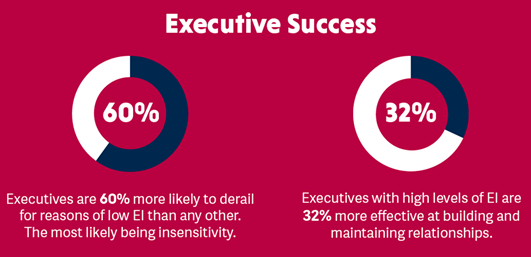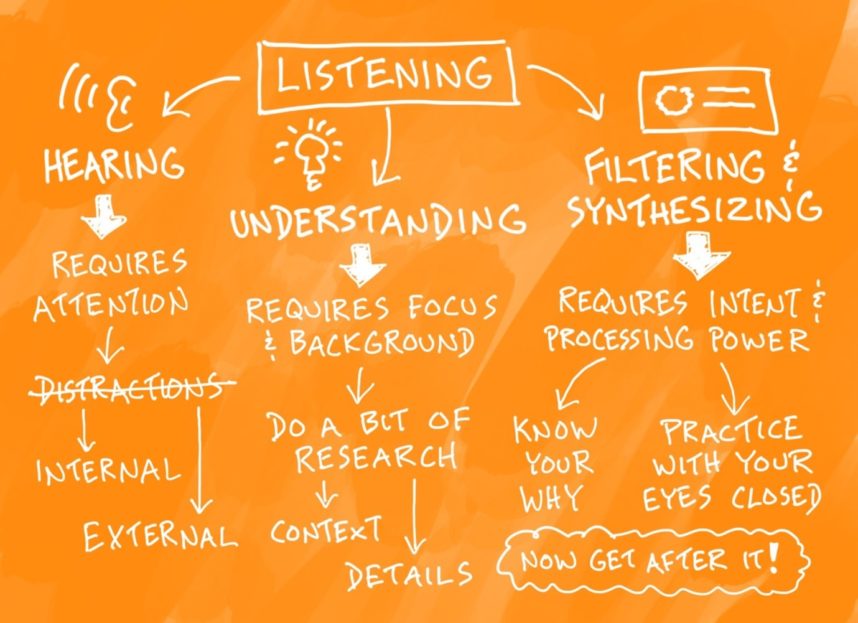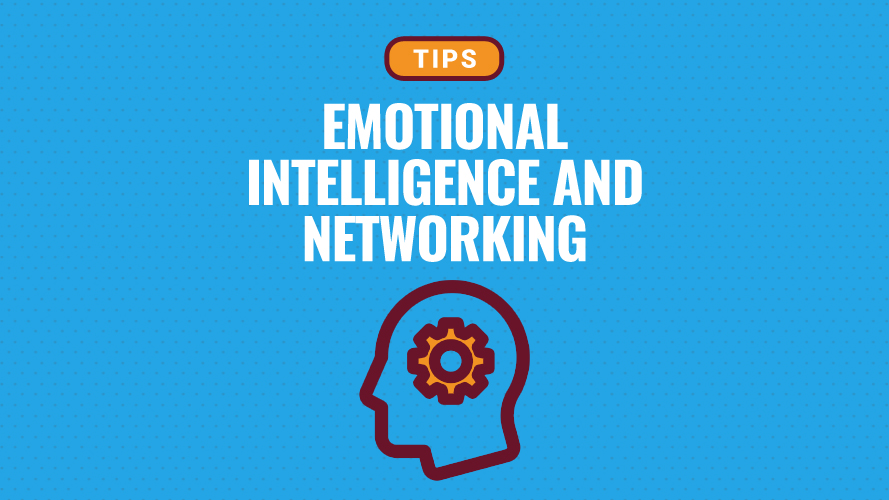Emotional intelligence, or EQ, has been documented as a major success factor in personal life.
But, EQ is also a critical element in business networking too. But first, we need to understand why CEOs and successful leaders must be a great networker. Here are some reasons.
- It strengthens business relations.
- Increase your profile and brand visibility.
- Let you promote your products/services in networks.
- Helps you learn from people who have already succeeded.
Now, what is the correlation between EI and business networking?
Business networking isn’t about exchanging business cards and following each other on social media. But it is about building long-lasting relationships with business executives in your own industry and outside of it.
According to review42, stats, 85% of professionals believe that face-to-face communication is critical for long-term business, while 38% of them say that they find it difficult business relationships.
Lack of emotional understanding with other people could be the reason.
This is why emotional intelligence is an essential component for successful CEO networking in 2020.
A 2-Minute Intro to Emotional Intelligence
All relationships involve emotions. We can drive people’s behavior by understanding their emotions and what motivates them. The same goes for business networking.
Emotional intelligence involves being sensitive and understanding of other people’s feelings and underlying behavioral traits. A person with a high IQ can formulate strategies to overcome a crisis, but only those leaders with high emotional elements can execute those strategies.
It’s not an option for leaders; it’s a MUST.
A basic trait that most good CEOs possess is excellent networking skills and emotional intelligence. Networking is when you engage people and require the ability to understand and manage your own and others’ emotions. In a study involving 2600 business professionals, 71% prioritizes EQ over IQ.

Image Source: https://www.psionline.com/
When asked why they gave the following reasons:
- They listen more than they speak.
- They are better at staying calm and composed when they face pressure.
- They do what they say (leading by example).
- They are good at handling criticism and admit their mistakes.
- They can resolve conflicts easily.
- They can discuss sensitive issues thoughtfully.
- They are empathetic and react accordingly.
All You Need to Know About Emotional Intelligence and Its Link to Better Networking Relationships
If you want to improve your emotional intelligence and networking skills, here are a few very important points to learn.
1. Practicing Self-Awareness
In emotional intelligence studies, the intrapersonal realm is also known as ‘communication with self’ includes the factors that define the relationship we have with ourselves.
It includes the following:
- Self-Regard – In networking, you must have positive self-regard. It is your ability to respect yourself and accept your strengths as well as weaknesses. It is only when you build on your strengths and minimize weaknesses. With high self-regard, you feel secure and confident in yourself. High self-regard is important because if you don’t have pride in your own brand and products, then it will be difficult to engage with others.
- Self-Esteem – Our self-esteem allows us to pick challenging goals for ourselves. High self-esteem makes you more effective at networking by developing the talent to move on and encounter a new prospect.
- Assertiveness – A must-have ingredient of emotional intelligence is assertiveness which allows you to express your beliefs and feelings in a positive way. In networking, it is about sending your message across. For instance, a good networker should be able to communicate the reason for the person he/she is engaging with through a meeting.
- Independence – A certain degree of independence is mandatory for networking effectively. Most CEOs and entrepreneurs are self-reliant. By this, I mean that they should be able to plan and make important decisions alone.
- Self-Actualization – It is another critical trait in networking where individuals realize their highest potential and fulfillment of their talent. At this stage, the focus is shifted from satisfying personal needs to bigger goals. They are enthusiastic and highly passionate about what they do. They are interested in learning about others, including their rivals and market expectations.
2. Recognize the Emotions of Others
The interpersonal realm refers to the relationships between people. It’s all about communication with others. So, here I’ll be focusing on tips and strategies that’ll help you gain competencies before going to a high-profile networking event.
- Empathy – Empathy involves recognizing and sharing the emotional experience and sentiments the other person is having. If a networking member loses a big contract and is facing a crisis, sympathy is telling them you are sorry for their loss – empathy is helping them find a new contract.
- Active Listening – People with high empathy tend to be good listeners. I have discussed this topic in detail in the upcoming section.
- Acting Responsibly – Social responsibility in networking is important too. Acting in a responsible manner show your company’s values and beliefs – how you make products and what drives you (it shouldn’t be money always).
3. Learn the Art of Listening
Those high in emotional intelligence tend to listen attentively without judging. They listen not only to respond but to gain understanding about an issue at hand and then come up with effective solutions.
In their book ‘Why Don’t We Listen Better?’, the author James C. Petersen said that most relationships (personal and professional) fail because when we don’t listen to people, they walk away unheard. As a CEO, you need to pay full attention to other networks.
Here are some basics of improving listening skills:
- You can use different non-verbal techniques such as nodding your head, making eye contact.
- Ask questions for clarification.
- Use phrases like ‘yeah’, ‘hmm’ to show your genuine interest.
- Observe the speaker’s non-verbal cues.

Source: https://www.verbaltovisual.com
By doing this, you are telling networking members that you can assist their organization. This would enhance not only your image but also your company’s image, and you’ll attract more investors.
4. Honor and handle your emotions
We all know that CEO-level stress is totally different because the issues are always complex and bigger. Many CEOs and entrepreneurs talk about the power of networking to gain access to new clients, knowledge, ideas, and investments.
But sometimes things get stressful when you have a wide network. The question is, how do you manage your stressful emotions?
The third realm of emotional intelligence is about two factors:
Stress Tolerance
You need to develop this ability because it helps you remain at peace and think clearly. From a networking point of view, it means that you will have to choose the right course of action and have a hopeful approach towards overcoming issues. You’ll attract more people to you when you are calm.
Impulse Control
Controlling your impulse is extremely important because negative emotions can hit you at any time. Those with high impulse control think before they speak. People with low impulse control can easily engage in irresponsible behavior, and this can damage their networks.
Use some personalized stress management techniques as well.
- Watch out for your body’s stress signals (e.g. sweating, heartbeat, sugar levels). According to a study by Dissertation Assistance UK, simple breathing exercises would do the job.
- Create a rule of thumb: allocate 20% of your months’ time on networking or 1 hour per day.
- Practice meditation.
- Lean on your teams and networks as it could be a source of constant stress.
- Answering every call on time and replying to emails is energy-draining when you have a lot of other important tasks on hand. The biggest benefit of having personal virtual assistants is that you transfer some of your responsibilities to them.
5. Mastering Human Relationships
You need to be adaptable to situations. It is our ability to be realistic and be flexible in resolving the problems we encounter in our professional and personal life. Success for CEOs, CXOs, entrepreneurs, and investors in this realm means that you, as a network, have effective solutions for clients.
When you are flexible, you are able to adjust your emotions, behaviors, and thoughts in uncertain situations. Moreover, it is essential for business people to move on and embrace the change. You must be thinking, does it mean networking?
This simply means that you can change networking partners as per your business needs. But an important tip is to be careful when to say ‘Yes’. Being overly flexible means that people can easily use you for their own personal benefit.
6. Self-motivation is Necessary
This is the final aspect of emotional intelligence as nobody could improve and achieve without personal commitment. You can even talk to thesis writing services and get assistance to develop a great speech.
People who aspire to become emotionally intelligent are motivated to act on opportunities. You need to accept that you cannot survive the competition. You need to talk to people because you cannot find opportunities on your own.
With this, you should enhance your general mood because happy people enjoy networking events and automatically attract clients.
A common myth attached to emotional intelligence is that people have intrinsic talent and innate abilities that cannot be learned. The reality is that emotional intelligence can be learned and improved with deliberate effort and practice.
When you leave out your comfort zone, you start to express your feelings accurately and take responsibility for them. Plus, you’ll experience better physical and mental health, develop a positive outlook, and build fulfilling relationships that last.
I conclude this note by encouraging you to find out your weak spots and overcome them by trying out these tips.
Author Bio
Claudia Jeffrey currently works as a Sr. Research Analyst & Lifestyle Blogger at Crowd Writer, a place for students to get the best coursework help in town. She is a technology freak who loves to contribute her innovative ideas and shares new invention and business practices on various online platforms.
